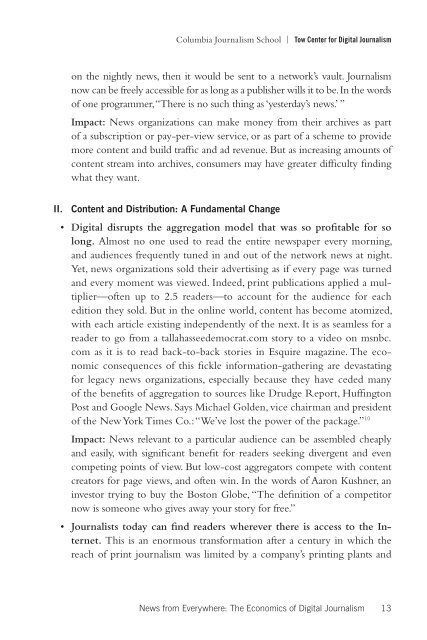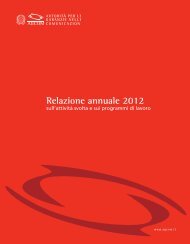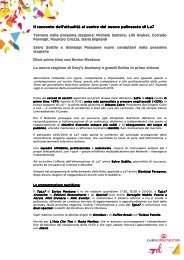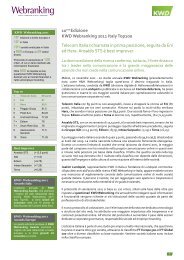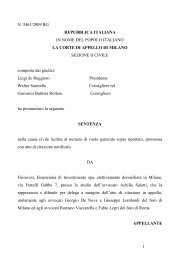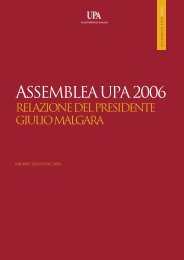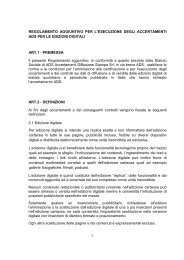What We Know About the Business of Digital Journalism
What We Know About the Business of Digital Journalism
What We Know About the Business of Digital Journalism
You also want an ePaper? Increase the reach of your titles
YUMPU automatically turns print PDFs into web optimized ePapers that Google loves.
Columbia <strong>Journalism</strong> School | Tow Center for <strong>Digital</strong> <strong>Journalism</strong>on <strong>the</strong> nightly news, <strong>the</strong>n it would be sent to a network’s vault. <strong>Journalism</strong>now can be freely accessible for as long as a publisher wills it to be. In <strong>the</strong> words<strong>of</strong> one programmer, “There is no such thing as ‘yesterday’s news.’ ”Impact: News organizations can make money from <strong>the</strong>ir archives as part<strong>of</strong> a subscription or pay-per-view service, or as part <strong>of</strong> a scheme to providemore content and build traffic and ad revenue. But as increasing amounts <strong>of</strong>content stream into archives, consumers may have greater difficulty findingwhat <strong>the</strong>y want.II. Content and Distribution: A Fundamental Change• <strong>Digital</strong> disrupts <strong>the</strong> aggregation model that was so pr<strong>of</strong>itable for solong. Almost no one used to read <strong>the</strong> entire newspaper every morning,and audiences frequently tuned in and out <strong>of</strong> <strong>the</strong> network news at night.Yet, news organizations sold <strong>the</strong>ir advertising as if every page was turnedand every moment was viewed. Indeed, print publications applied a multiplier—<strong>of</strong>tenup to 2.5 readers—to account for <strong>the</strong> audience for eachedition <strong>the</strong>y sold. But in <strong>the</strong> online world, content has become atomized,with each article existing independently <strong>of</strong> <strong>the</strong> next. It is as seamless for areader to go from a tallahasseedemocrat.com story to a video on msnbc.com as it is to read back-to-back stories in Esquire magazine. The economicconsequences <strong>of</strong> this fickle information-ga<strong>the</strong>ring are devastatingfor legacy news organizations, especially because <strong>the</strong>y have ceded many<strong>of</strong> <strong>the</strong> benefits <strong>of</strong> aggregation to sources like Drudge Report, HuffingtonPost and Google News. Says Michael Golden, vice chairman and president<strong>of</strong> <strong>the</strong> New York Times Co.: “<strong>We</strong>’ve lost <strong>the</strong> power <strong>of</strong> <strong>the</strong> package.” 10Impact: News relevant to a particular audience can be assembled cheaplyand easily, with significant benefit for readers seeking divergent and evencompeting points <strong>of</strong> view. But low-cost aggregators compete with contentcreators for page views, and <strong>of</strong>ten win. In <strong>the</strong> words <strong>of</strong> Aaron Kushner, aninvestor trying to buy <strong>the</strong> Boston Globe, “The definition <strong>of</strong> a competitornow is someone who gives away your story for free.”• Journalists today can find readers wherever <strong>the</strong>re is access to <strong>the</strong> Internet.This is an enormous transformation after a century in which <strong>the</strong>reach <strong>of</strong> print journalism was limited by a company’s printing plants andNews from Everywhere: The Economics <strong>of</strong> <strong>Digital</strong> <strong>Journalism</strong> 13


